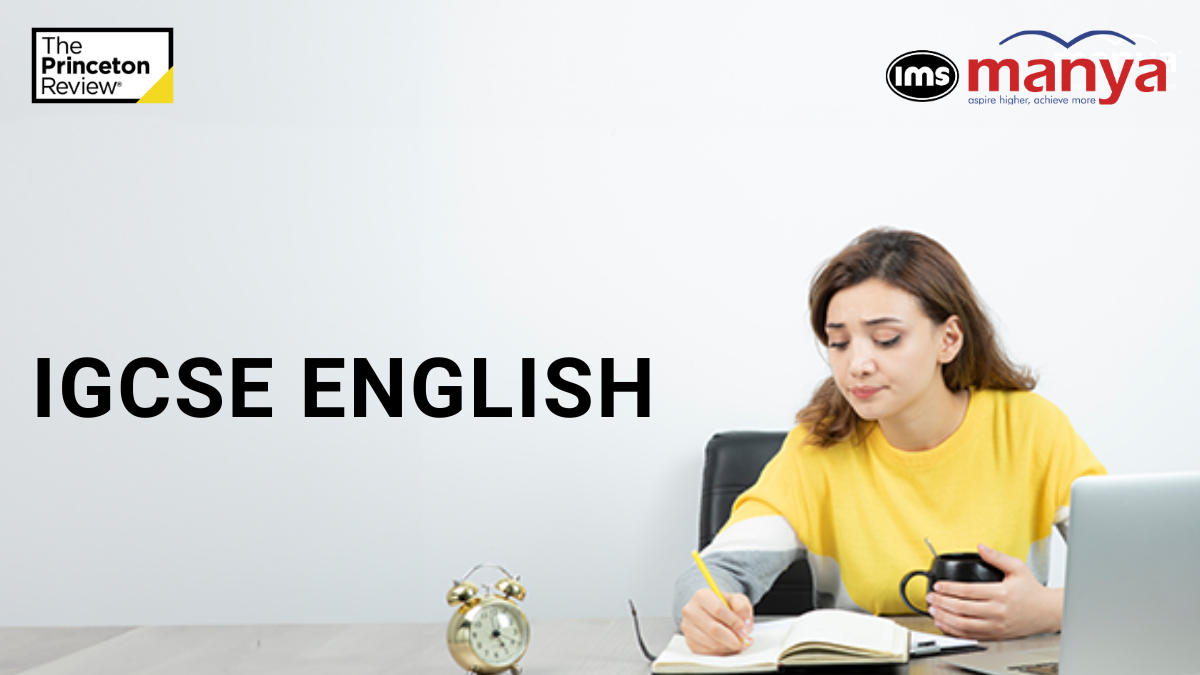IGCSE English: Syllabus, Key Topics & Exam Preparation

The IGCSE English course provides online academic tutoring that helps students communicate clearly and effectively in both speaking and writing. This involves using a wide range of vocabulary and adhering to correct grammar, spelling, and punctuation.
Students read various types of literature, including prose, poetry, and plays by contemporary authors and Shakespeare. The IGCSE English syllabus deepens students’ understanding of how writers use language to convey meaning. It also encourages exploration of broader issues, promoting a better understanding of themselves and the world around them.
- Reading
- Writing
- Speaking and Listening
- Master the IGCSE English syllabus using recommended IGCSE English books
- Create targeted IGCSE English notes for revision
- Practice with authentic IGCSE English past papers
IGCSE English As A First And Second Language
In theory, both options are equally weighted. According to IGCSE, English as a First Language (EFL) is intended for students who speak English as their first language. English as a Second Language (ESL) is for people whose first language is not English but who want to improve their communication skills in it.
What Is the Distinction?
If you feel comfortable with English and use it primarily for communication, then EFL is the better option for you. This course delves into more advanced aspects, such as evaluating vocabulary, grammar, spelling, punctuation, and other essential skills.
It starts from the premise that you are already a fluent English speaker and writer. On the other hand, ESL is designed for individuals who possess less advanced English skills and aim to improve their language abilities to enhance their opportunities for further studies or their chosen career. To grasp the distinction more clearly, take a moment to review what the assessment outlines. This will provide you with a better understanding of which course aligns with your current proficiency and goals.
IGCSE English – First Language Cambridge (0500)
Cambridge IGCSE First Language English is intended for students who speak English as their first language. The course enables students to:
- Improve your ability to speak and write accurately and effectively.
- Employ a diverse vocabulary as well as proper grammar, spelling, and punctuation.
- Create a personal style and be aware of your audience.
Learners are also encouraged to read widely, both for their enjoyment and to broaden their understanding of how English can be used. Cambridge IGCSE First Language English also fosters more general analysis and communication skills, such as inference and the ability to organise facts and effectively present opinions.
English As A Second Language IGCSE (Speaking Endorsement) (0510)
Planning to Prepare for IGCSE English
Making the best decision on which option is best for you is determined by two major factors:
- Your familiarity, fluency, and level of comfort with the English language
- Your future academic or professional goals
When considering studying or working in a country where English is the main language, it is important to note that college admissions departments and potential employers typically prefer candidates who have studied English as a Foreign Language (EFL). This preference arises from their confidence that such candidates will not face significant language barriers that could hinder their academic or career success. Interestingly, while not officially stated, it’s commonly believed that a C grade in EFL is often viewed more favorably than an A grade.
FAQs
How do you score an A* in IGCSE English?
Improve your writing by practising regularly. After each recommended reading, challenge yourself with tasks like writing a review, summary, exam question, or short essay. This will strengthen your analytical skills and is a great tip for IGCSE English.
Is the IGCSE English Syllabus difficult?
IGCSE English Syllabus isn’t particularly hard, but it requires dedication and practice to improve your writing skills. With the right effort and guidance from your tutor, you can achieve excellent grades.
What is the goal of the course?
The main goal is to achieve effective communication suitable for everyday use while providing a foundation for further language study.



